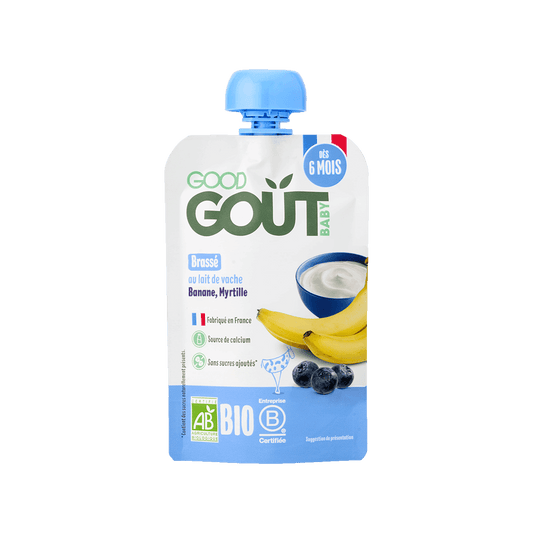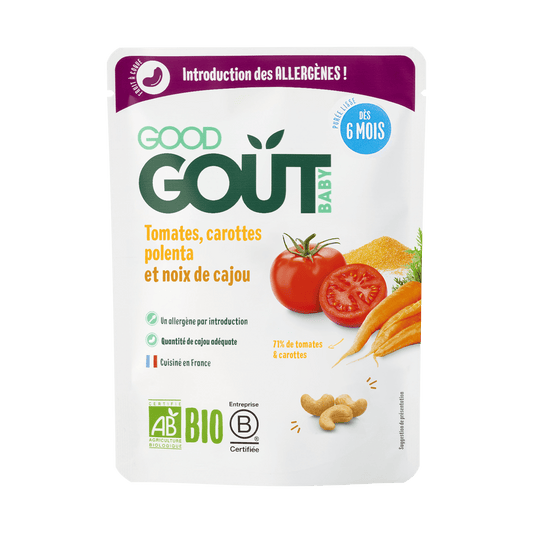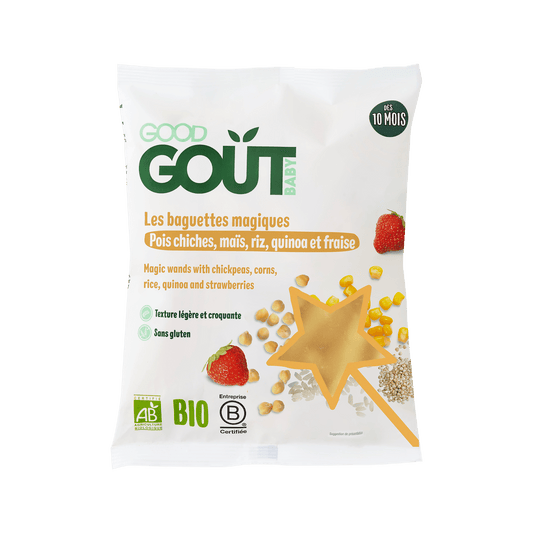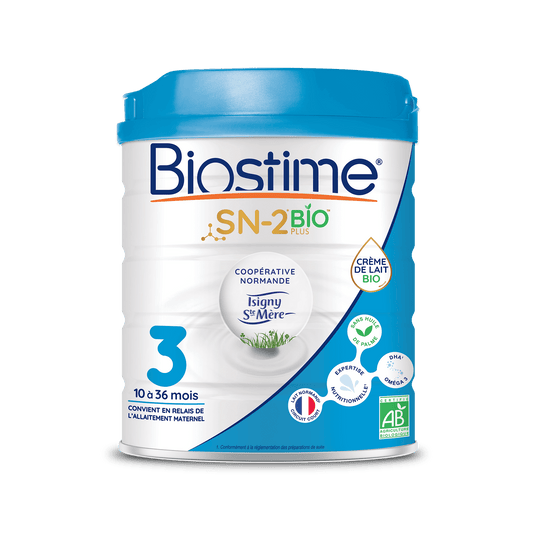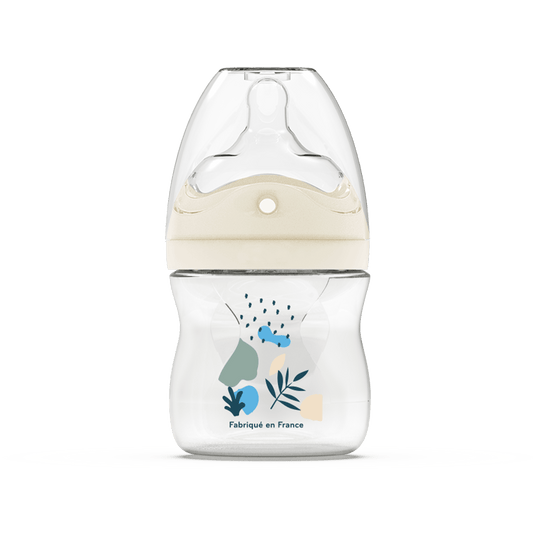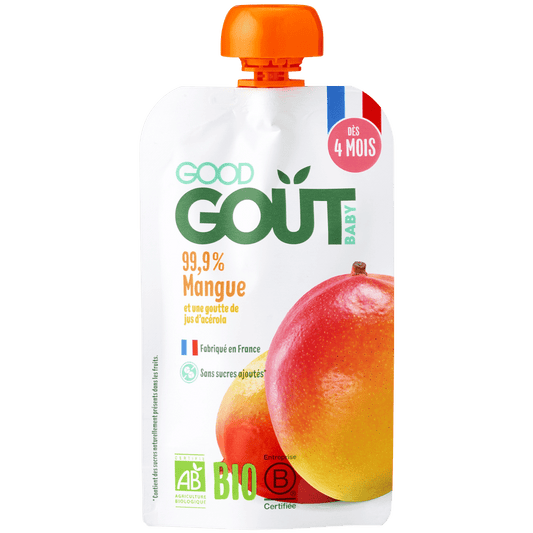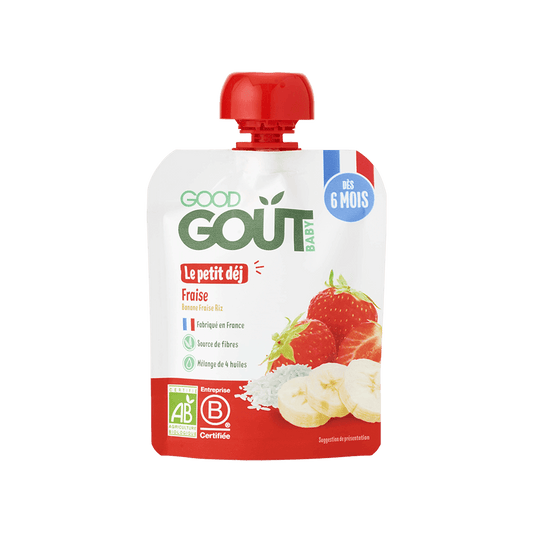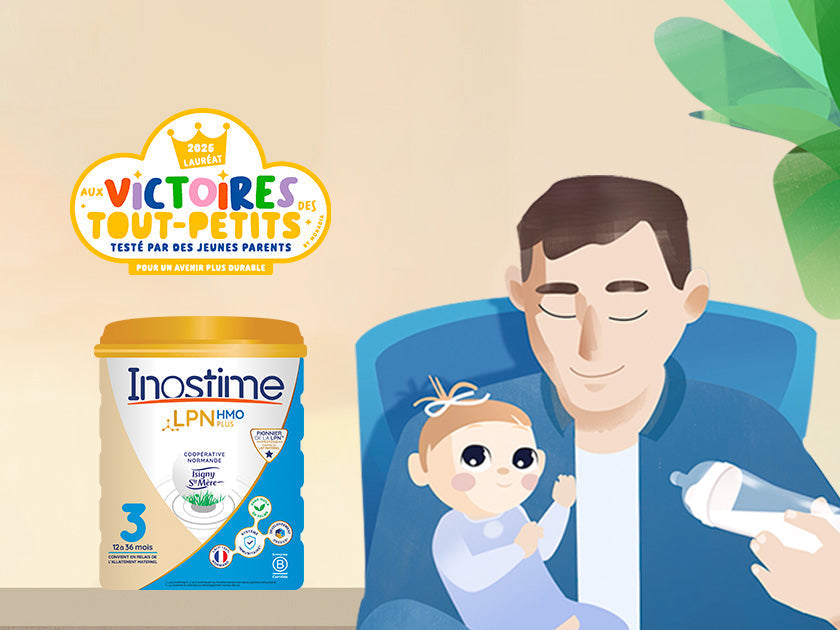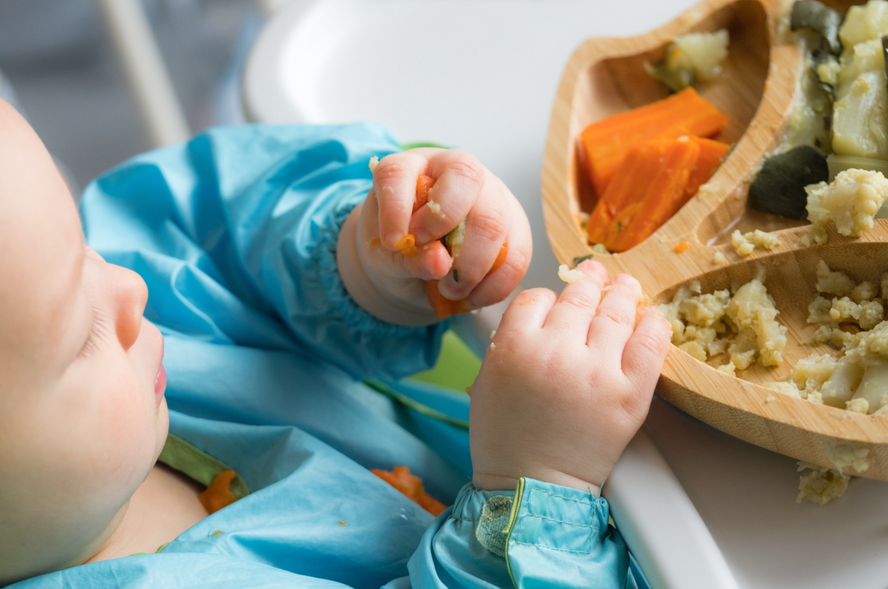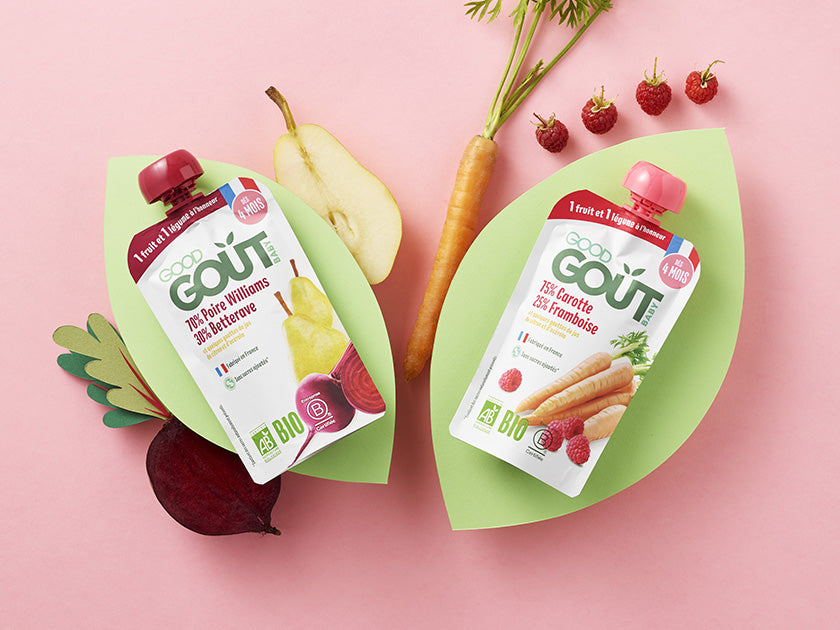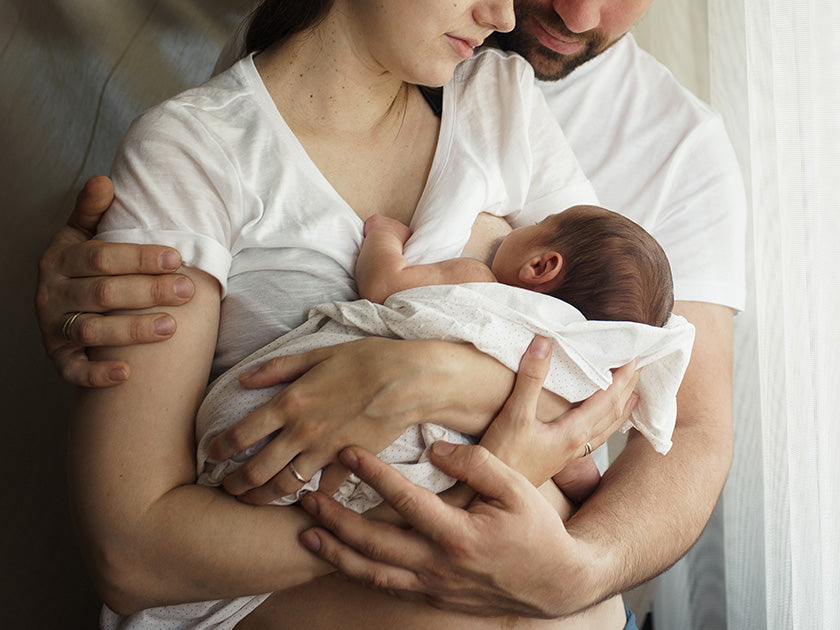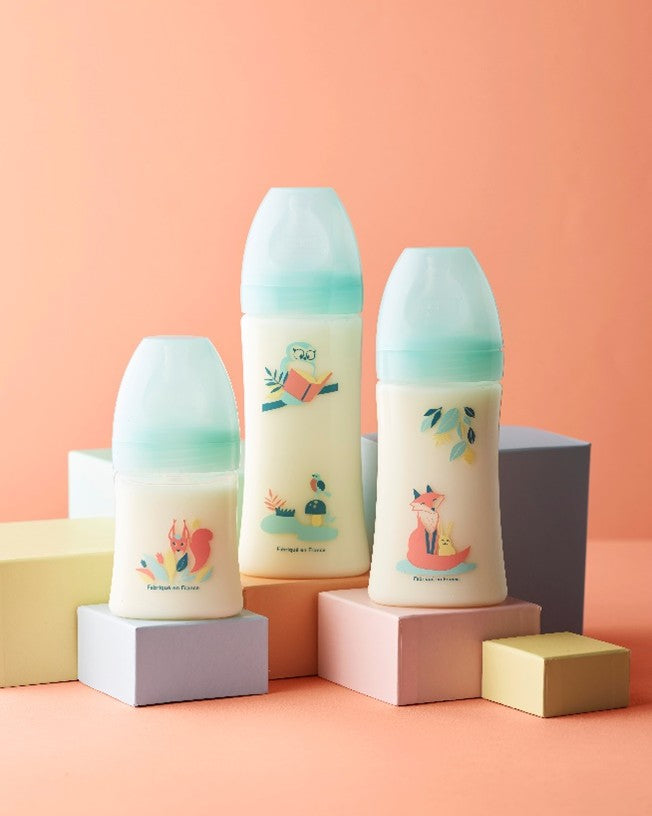1) Water!
While staying properly hydrated is essential at all stages of life, it is important to know that a baby's water needs are , in proportion to their size, approximately 4 times higher than those of an adult. In fact, babies tend to lose a lot of water through sweating (perspiration) and especially through perspiration (insensible evaporation of water on the skin).
Additionally, your baby's immature kidneys are still underperforming and have difficulty eliminating toxins and waste. He must therefore produce large quantities of urine to cleanse his tiny body.
To replace all this lost water, it is therefore necessary to reintroduce it...directly through the mouth :)
2) Nothing but water...
Well, up to 4 months, the water contained in milk (breast or infant) is sufficient to meet their needs.
Then, after 4 months , when the child starts to eat solid foods, their water needs increase because all the foods they discover contain less water than milk. However, make sure you only give them pure water . Avoid fruit juices, and especially syrups.
Around his first birthday , your baby's food starts to resemble yours, the food is more solid. You must therefore hydrate him accordingly: half a liter of water per day (in a glass or bottle). And since he is starting to exercise a lot, always have water available...
3)... but not rainwater!
Well, that's all well and good, but what water should you give your baby?
First, it must be very low in minerals to avoid overheating your baby's kidneys. It must be very low in nitrates —less than 15 mg per liter—because these are considered toxic for infants. Finally, this water must be microbe-free...
It is for all these reasons that pediatricians recommend giving low-mineralized mineral waters - less than 500mg of minerals per liter - such as Mont Roucous (22mg per liter), Montcalm (32mg per liter) or Wattwiller (155mg per liter).
These mineral waters have the advantage, compared to spring water, of coming from protected underground water tables, which allows for high purity and a stable and constant mineralization rate. That being said, a bottle of spring water labeled "suitable for preparing infant food" is of course a good choice.
Finally, according to the AFSSA (French Food Safety Agency), tap water can also be suitable, provided you first check its mineral content and nitrate levels. If you decide to use water from a carafe, also remember to boil it before adding it to the milk powder in the bottle.
There you have it, you know everything, that's one less question to answer and that feels good! Oh, just one thing: bottled water doesn't resist light and heat. So don't keep a bottle open for more than 24 hours and above all, no one drinks straight from the bottle! ;)

